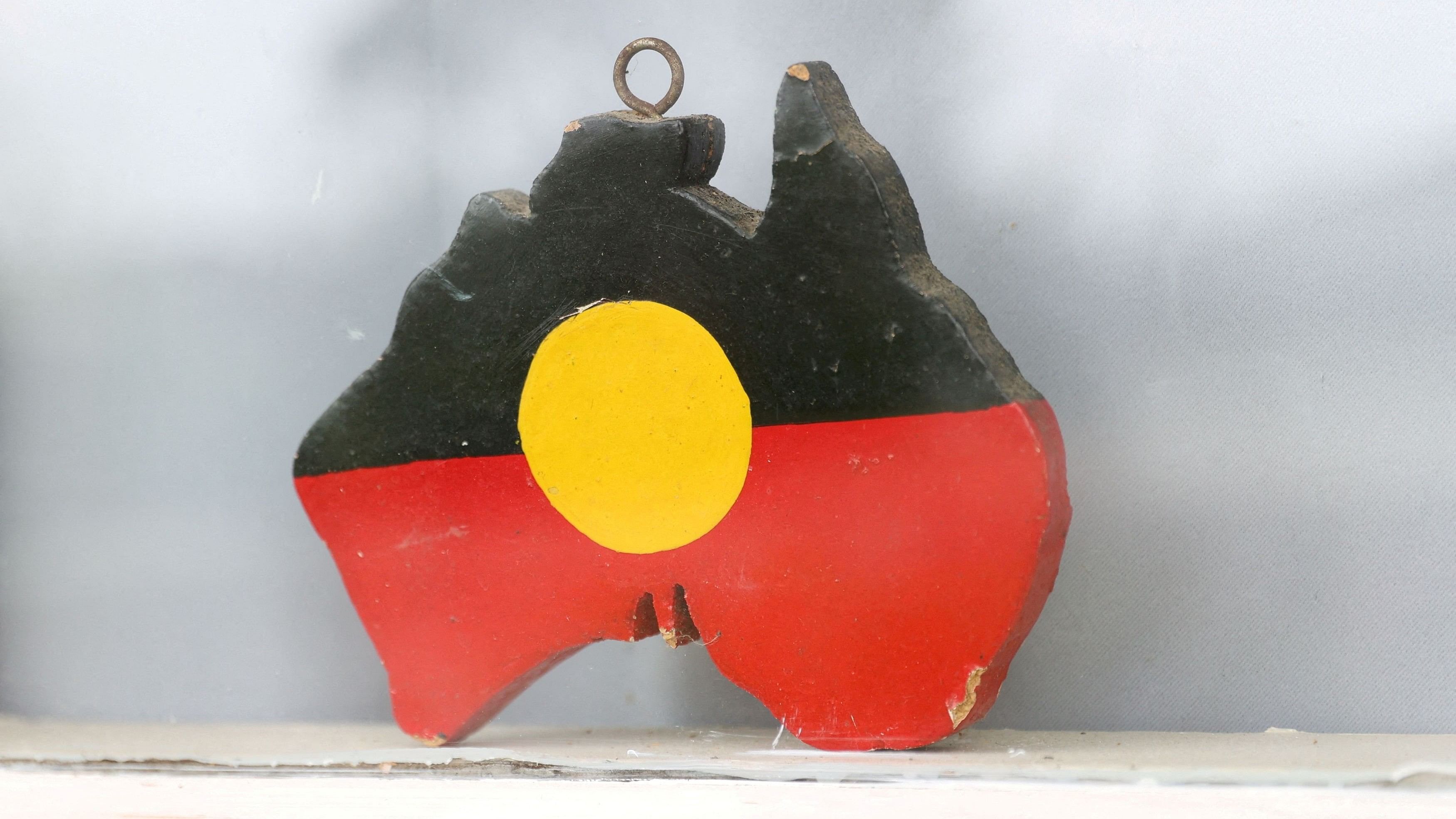
A representative image of an Australian Aboriginal flag.
Credit: Reuters Photo
Melbourne: Gail Puruntatameri has to provide proof of her Aboriginal identity to access government services - along with work and healthcare - and is always worried she might lose it.
"It's very hard for me, for the children, when we lose our IDs," she said. "It's very hard to access jobs and everything."
Indigenous Australians, who have long struggled to obtain official documents such as birth certificates and drivers' licences, now risk a fresh barrier with the country's new digital identification system, human rights experts say.
The Digital ID Act, due to be enforced later this year, aims to "legislate and expand" the government's digital ID system to provide "secure, convenient, voluntary and inclusive ways" to verify identity in all manner of online transactions.
But advocates say it fails to accommodate First Nations Australians: Aboriginal and Torres Strait Islander people who make up about 3.8% of the population and have their own traditions and languages.
Digital rights groups say the system can also be used for surveillance, with recent cyber hacks heightening security fears.
More than 80 nations operate a government-recognised digital ID system, using remote authentication to let people access online services and transactions, according to the World Bank.
"A well-functioning, robustly safeguarded and carefully implemented government-led digital identity system has the potential to minimise risks," said Samantha Floreani, Head of policy at Digital Rights Watch, a non-profit in Australia.
"But it also has the potential to undermine human rights, enable surveillance, create dangerous digital security vulnerabilities, and undermine fairness, agency and dignity for people," she added.
On the plus side, digital ID systems can increase efficiency, transparency and security, and open up opportunities in e-commerce and the working world, authorities say.
But Indigenous people remain largely excluded from a system that ignores their naming traditions and whose facial verification technology is less accurate with darker skin tones and facial tattoos, according to experts.
"Digital ID systems lack Indigenous values and cultural sensitivity," said Jason Urranndulla Davis, Founder of Hold Access, a tech firm in Australia that is building a digital wallet for under-documented people.
Australia's Digital ID bill prohibits the collection of information on an individual's racial or ethnic origin on privacy grounds, and that can harm First Nations people by excluding their roots and cultural heritage, Davis said.
"Without inclusion of elements of racial attributes in the Digital ID Bill, the fundamental rights and freedoms of First Nations Australians will be gradually eroded," he told the Thomson Reuters Foundation.
No ID, no online life
Online access to education, healthcare, banking, work and government services all gathered pace in the pandemic, even as experts warned the vulnerable could be left behind and as data breaches and cybercrime surged globally.
Worldwide, at least 1.25 billion people do not have a digitally verifiable identity, and 3.3 billion lack access to a government-recognised digital ID that enables safe online transactions, the World Bank estimates.
In Australia, nearly half of remote First Nations communities were "highly excluded" from digital services and tools, researchers found last year, despite a national goal of achieving "equal levels of digital inclusion" by 2026.
Affordability, less formal education, limited training and non-native English are often hurdles, the researchers said.
In addition, First Nations people often face social and economic barriers to obtaining birth certificates and passports that are vital for any digital ID verification process.
"There needs to be assistance to provide alternative forms of identity documents," said Lauren Perry, a specialist at the Human Technology Institute at University of Technology Sydney.
Also, "given facial verification technologies have historically been less accurate for people of colour ... genuine testing and consultation must be undertaken with Indigenous communities," she added. The Australian government has held roundtables attended by First Nations representatives, said a spokesperson for the department of finance, which is responsible for the bill.
Authorities are aware that some people "experience difficulties when systems are not designed to recognise culturally and linguistically diverse naming conventions," the spokesperson said.
"The government is working on this to better accommodate differing naming conventions," and is committed to making digital ID easier for all Australians, they said.
Alternative methods
Government-issued digital IDs, all but ubiquitous in wealthy nations, are contentious in many countries, with human rights groups accusing authorities from Ethiopia to Pakistan of using them for ethnic profiling and excluding minority groups.
In New Zealand, an ID check programme to enable residents to authenticate themselves online for public and private-sector services has been dogged by a high failure rate in tests, especially for Maori people who said they had not been consulted, according to local media reports.
Hold Access has tested its digital wallet, Wuna, in the Northern Territory with First Nations people, said Davis.
Wuna - comprising a digital app and a physical card - allows people to store and access their documents and proof of their Indigenous identity remotely and securely, Davis said.
For Puruntatameri, Wuna - an Aboriginal word that means making informed choices - has relieved her of the stress of losing her Aboriginal ID proof.
"Wuna makes it easier for me, for the children to access our IDs, find jobs," she said.
It is essential that Indigenous people can still use traditional or alternative methods of identity, said Lyndon Ormond-Parker, co-chair of the First Nations Digital Inclusion Advisory Group, a government agency.
Although the proposed digital ID is voluntary, "there is a risk that traditional or alternative means will slowly get phased out under the assumption that everyone will use online service delivery," he said.
Risks aside, there are positives for Indigenous people, too.
"We believe there is a huge opportunity for First Nations people to be part of and shape a digital world that is uniquely our own," said Ormond-Parker.